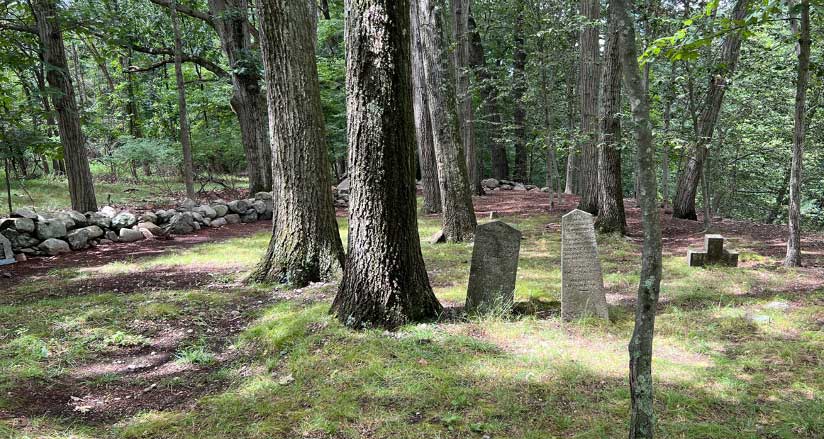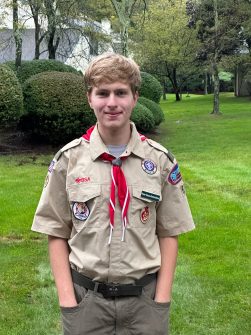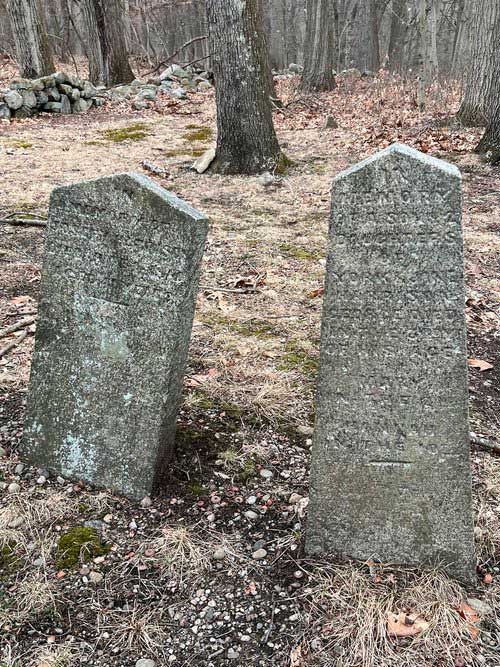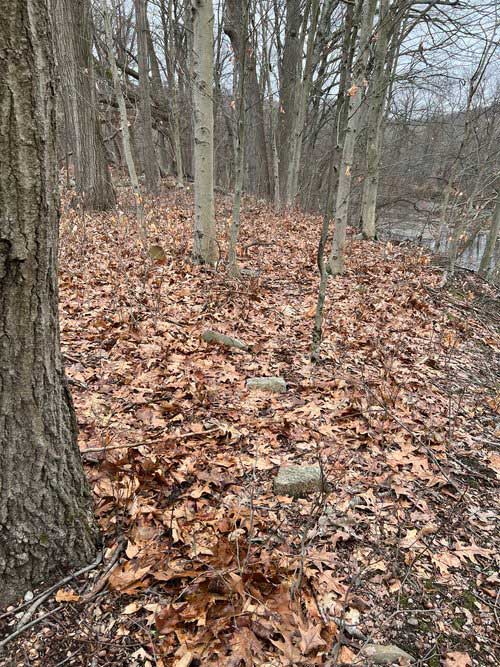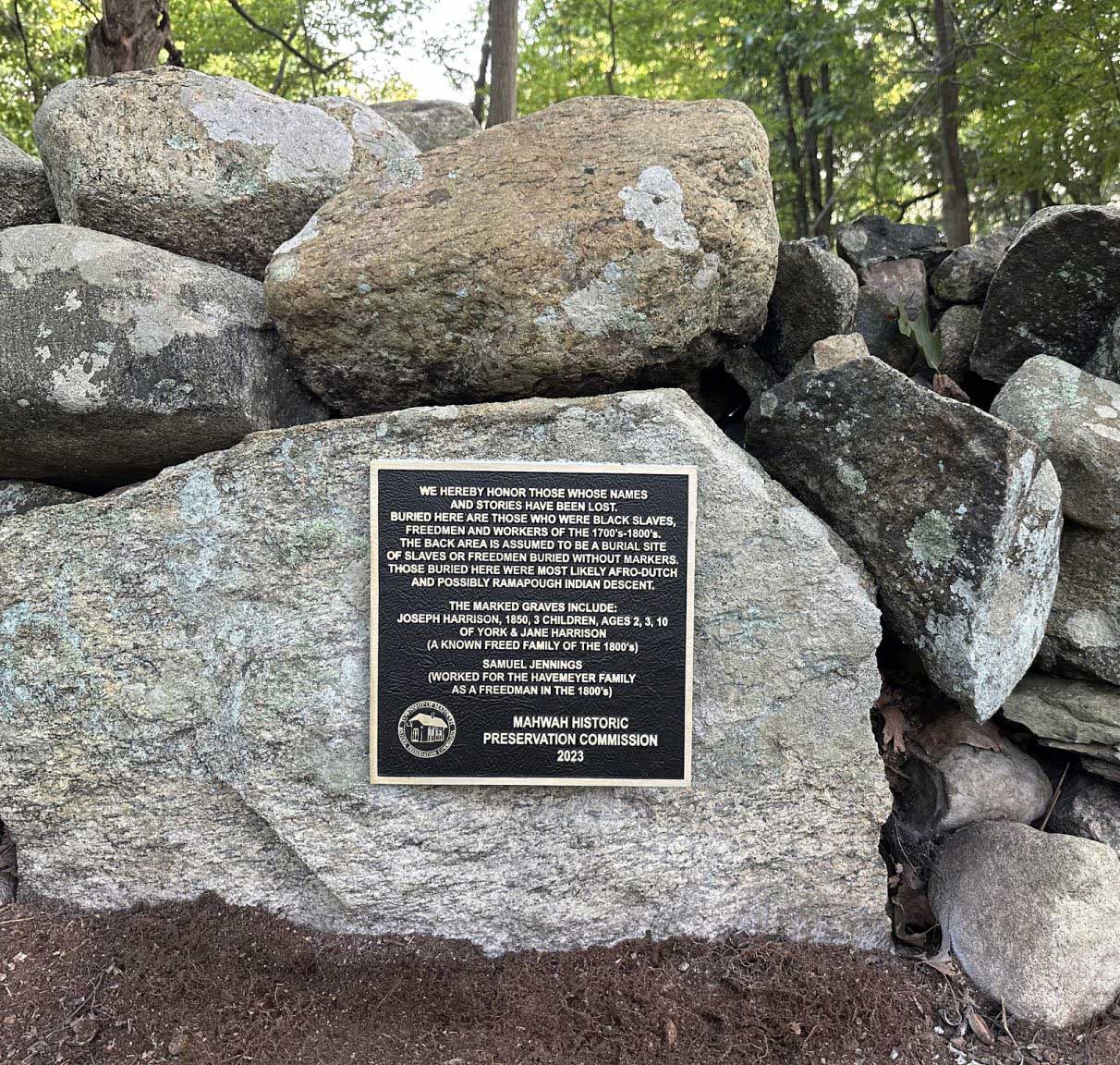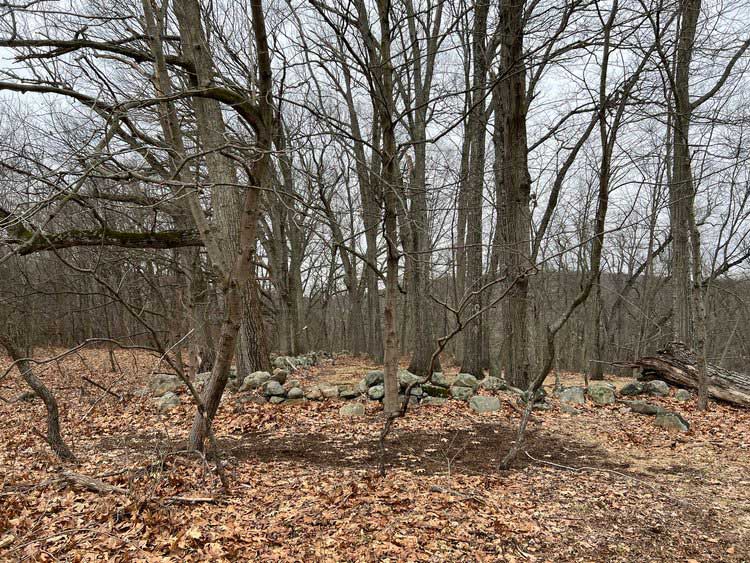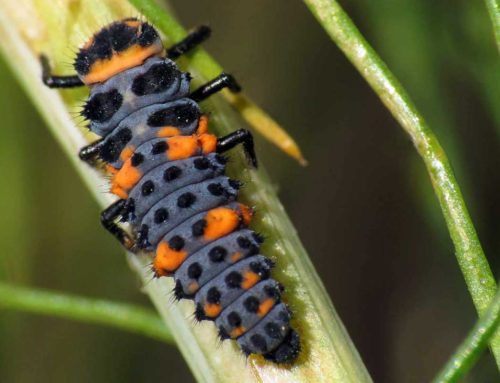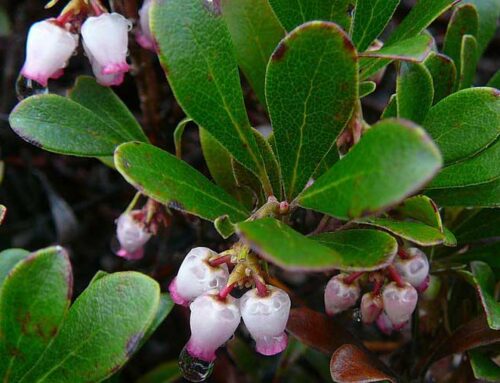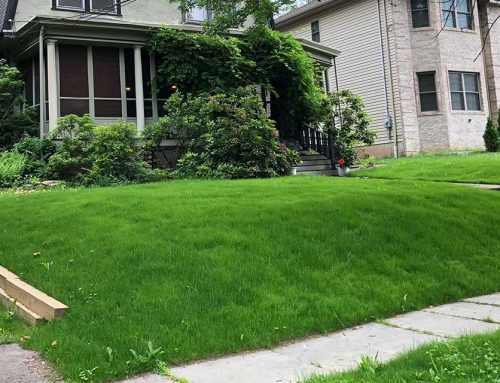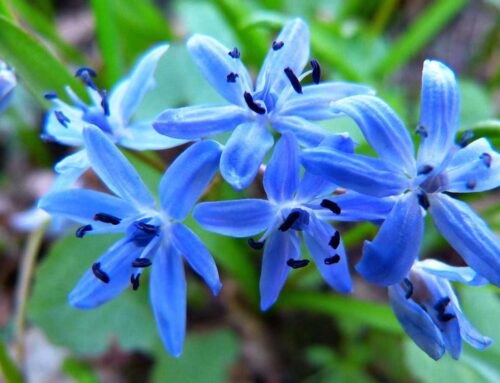Giving Back
1800s Slave Cemetary Preservation
1800s Slave Cemetery, Hidden In Mahwah Woods
Is Being Restored By Boy Scout And Volunteers
“I think that recognizing Mahwah’s history is very important. Most Mahwah residents probably don’t know that slaves existed in Mahwah, and I hope my project can spread awareness.”
Local Boy Scout Peter Kaya Gretchikha has teamed up with the Mahwah Historic Preservation Commission to restore an abandoned slave cemetery that may date to the late 1700s, the Commission said. The 25 or so graves, hidden in a hard-to-reach part of Mahwah, are believed to be for slave families.
Hidden among the trees just off of Ramapo Valley Road, perched above the Ramapo River, is a low rock wall bordering at least 25 unmarked slabs of stone. There are several other graves marked in a separate area, believed to be for people of mixed race.
He’s a member of Mahwah Boy Scout Troop 50, which recently celebrated its 100th Anniversary. Many other Eagle Scouts have graduated from the troop, the Historic Commission noted.Gretchikha
The Scout, who’s also an aspiring engineer, said he used his engineering principles to repair sections of the rock wall. Gretchikha recruited 14 volunteers, and they spent more than 70 hours restoring the site in the heat of summer. He’s a member of Mahwah Boy Scout Troop 50, which recently celebrated its 100th Anniversary. Many other Eagle Scouts have graduated from the troop, the Historic Commission noted.
Gretchikha recruited Michael Kolenut of Lincoln Landscaping, who donated his time to help clear a path to the site and advise on how to safely remove the overgrown brush without damaging the graves, the Commission said.
“This hallowed ground is where men and women have toiled their whole life, only to be buried behind the white cemetery with a simple boulder to mark their lives. I am so proud of the Scout for cleaning up the area, right in Mahwah’s backyard. If visiting, pay your respects.”
“Slave Cemetery, Ramapo Valley Road.” is a poignant reminder of a historically significant and sacred site, nestled within the trees along the Ramapo River. Covering an area of approximately 40 by 100 feet, this land is enclosed by a low stone wall and, while abandoned, still receives a form of care. Local tradition holds that this site was used as a cemetery for enslaved individuals. The 1979 book “History of Mahwah” by Bischoff and Kahn lists several families in the area who were known to have owned slaves, underscoring the historical context. Today, a visit to this site serves as a way to honor those whose names and stories have been lost to time. It is the final resting place of black slaves, freed individuals, and workers from the 1700s to the 1800s, likely of Afro-Dutch and possibly Ramapough Indian descent
Today, a visit to this site serves as a way to honor those whose names and stories have been lost to time. It is the final resting place of black slaves, freed individuals, and workers from the 1700s to the 1800s, likely of Afro-Dutch and possibly Ramapough Indian descent. Some marked graves include that of Joseph Harrison (1850), three children of York and Jane Harrison, who were part of a known freed family in the 1800s, and Samuel Jennings, a freedman who worked for the Havemeyer family during the 1800s. The Jennings stone may have been replaced in the 20th century, but the site’s historical significance remains intact. More information can be found in the Bergen County Historic Sites Survey, and updates can be found on the Facebook page “Grave Matters.”
Ramapo Students Created Plaque
The Commission said that other people helped preserve the site over the years. Former Ramapo College Adjunct Professor Jeff Williamson led students in some restoration work a decade ago, they said. The professor helped create and install a plaque so that anyone who finds themselves in this sacred space will know its history, the Commission said.
The plaque reads:
We hereby honor those whose names and stories have been lost. Buried here are those who were black slaves, freedmen and workers of the 1700s-1800s.
The back area is assumed to be the burial site of slaves or freedmen buried without markers, the Commission said. Those buried there were most likely of Afro-Dutch and possibly Ramapough Indian descent, the said.
Marked Graves Include:
Joseph Harrison, 1850, 3 children, ages 2, 3, 10 of York & Jane Harrison (a known freed family of the 1800s)
Samuel Jennings (worked for the Havemeyer family as a freed man in the 1800s)
Images & Content excerpts from – The Ridgewood Blog | The Patch New Jersey
At Lincoln Landscaping cultivating the environment is our life and livelihood. It is our number one goal to help our clients create and maintain beautiful landscapes while reducing the impact on the environment. Whether you are interested in a pollinator landscape garden design and build or other landscaping or property management project; we can create for you an environmentally friendly, organic and beautiful property.
Lincoln Landscaping “The Natural Choice”
Mike Kolenut President & CEO
https://lincolnlandscapinginc.com
(201) 848-9699

